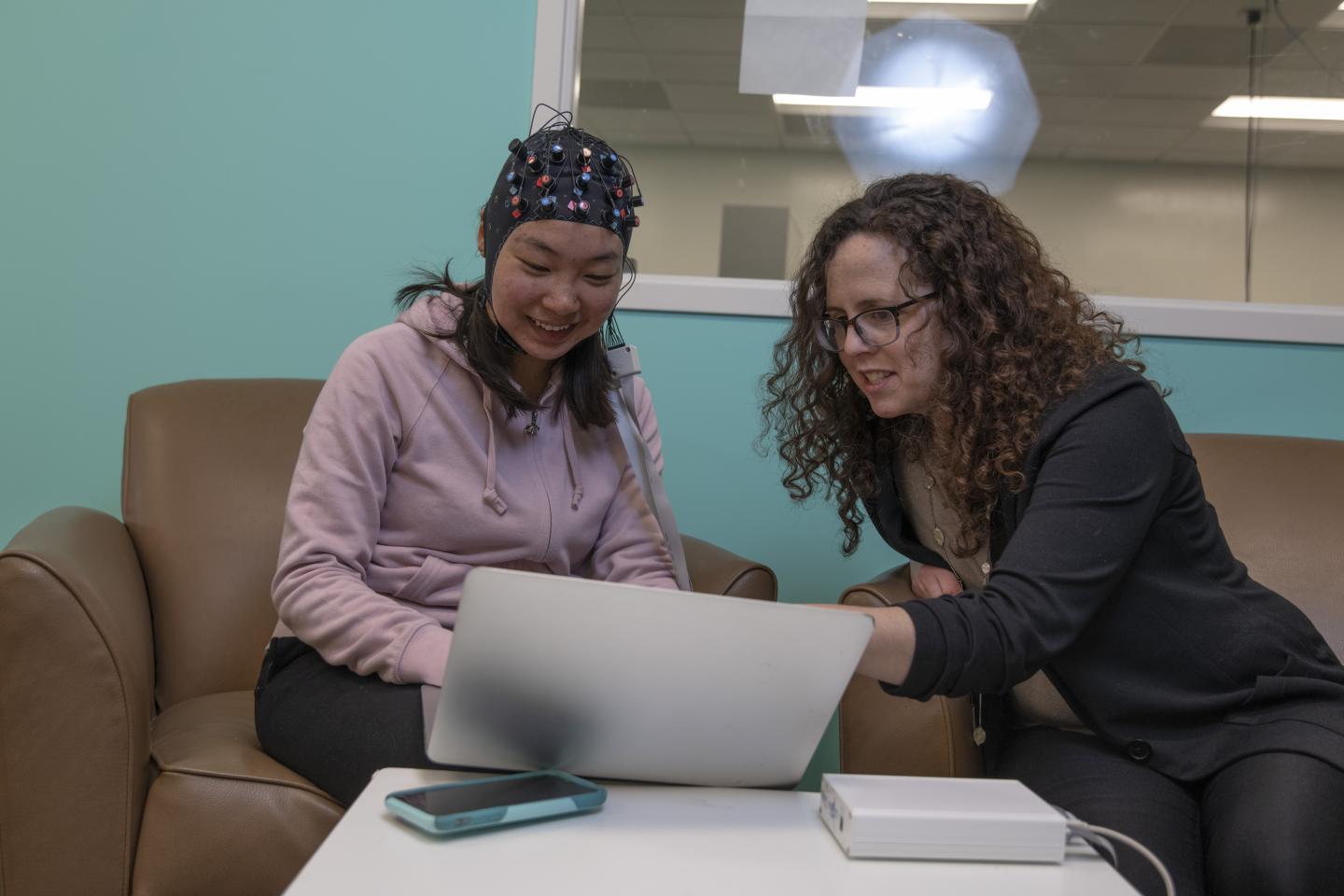A Worcester Polytechnic Institute computer science professor has received $1 million from the National Science Foundation to use computer science and neuroscience tools to study online learning

Credit: Worcester Polytechnic Institute (WPI)
WORCESTER, Mass. — Could a computer detect a person’s emotions? Could it tell when someone is frustrated over something like a tricky math problem on an online tutoring program? Could it detect deep reflection on a problem? A research team led by Worcester Polytechnic Institute (WPI) computer science assistant professor Erin Solovey is working to develop a system that could extract that information by merging computer science with neuroscience. Through a collaborative $1 million National Science Foundation (NSF) grant, researchers will explore the use of sensors to measure brain activity during learning. They will then compare that information with student log data to understand important mental activities.
“Personal learning environments offer a huge amount of data about a student’s learning process by recording correct and incorrect problem-solving responses,” said Solovey, “but they fail to capture critical information about what is happening during pauses between student interactions with the software.”
Over the course of the three-year study, Solovey and her collaborators at Arizona State University and Lehigh University will use lightweight, noninvasive sensors to collect brain data as students use a computer tutoring program. With the student wearing a cap fitted with external sensors that measure brain waves, the team will examine whether the student is thinking deeply about the problem or if his or her mind is wandering during pauses in the learning tasks. With a better understanding of when and how learning occurs during pauses, teachers and technology developers will be able to create adaptive interventions within tutoring systems that are better personalized to the needs of the individual.
The study is part of NSF’s support of Understanding the Brain and the BRAIN Initiative, a coordinated research effort that seeks to accelerate the development of new neurotechnologies. Solovey’s work is one of 18 cross-disciplinary projects the NSF funded to conduct innovative research on neural and cognitive systems.
“The teams will integrate multiple disciplines to look at fundamental questions about the brain in new ways,” said Shubhra Gangopadhyay, NSF program director in the Engineering Directorate. “The research will tackle problems that were previously intractable for neuroscience and cognitive science and will open up new avenues for future research. We are excited to see where these high-risk, high-reward proposals take us as a field.”
The WPI-led team will examine developmental math learning in college and community college students using the ASSISTments intelligent tutoring system, a free online math homework tutoring program developed at WPI. The results, however, could apply to a variety of computer-based learning applications from elementary school math games to workplace training.
“It also will allow us to explore novel human-computer interaction paradigms for utilizing sensors that provide passive, continuous, implicit, but noisy input to interactive systems,” said Solovey. “This has implications for the growing fields of brain-computer interfaces, wearable computing, physiological computing, and ubiquitous computing.”
The grant directly funds three PhD students. Over the course of the project, there will be other graduate and undergraduate students working on research related to this project.
###
About Worcester Polytechnic Institute
WPI, a global leader in project-based learning, is a distinctive, top-tier technological university founded in 1865 on the principle that students learn most effectively by applying the theory learned in the classroom to the practice of solving real-world problems. Recognized by the National Academy of Engineering with the 2016 Bernard M. Gordon Prize for Innovation in Engineering and Technology Education, WPI’s pioneering project-based curriculum engages undergraduates in solving important scientific, technological, and societal problems throughout their education and at more than 45 project centers around the world. WPI offers more than 50 bachelor’s, master’s, and doctoral degree programs across 14 academic departments in science, engineering, technology, business, the social sciences, and the humanities and arts. Its faculty and students pursue groundbreaking research to meet ongoing challenges in health and biotechnology; robotics and the internet of things; advanced materials and manufacturing; cyber, data, and security systems; learning science; and more. http://www.
Media Contact
Colleen Wamback
[email protected]
508-688-4858
Original Source
https:/




